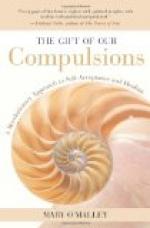It is equally cheering to feel that we ourselves have a place in the memory of our friends. What a motive it should be to us, then, to live in such a manner that their memory of us may be as “the memory of the just,” which the Scriptures declare to be “blessed.”
SELFISHNESS.
The selfish man wrongs himself in attempting to wrong others. In filling his pockets unjustly with gold, he drives away joy from his soul. He forgets his relationship to angels, and only remembers his affinity to brutes.
TROUBLE.
Worldly trouble is the tonic of the soul. Affliction at once humbles us and gives us a relish for spiritual food. Those providences which teach us the insufficiency of earth, make us lean on heaven.
REVENGE.
Revenge is the putting out of one’s own eyes for the sake of putting out the eyes of another.
A BIOGRAPHICAL SKETCH.
In admiring the virtues and moral excellence of one who holds a high rank in society, who fills a distinguished place in the State, or occupies a responsible seat in the halls of science or in the church, we are liable to be swayed in our judgment. His social position is a kind of magnifying lens, through which all his virtues are viewed. But when a comparatively obscure individual from the humbler walks of life claims our attention, we are better able to estimate his virtues at their true value.
Such a one we meet with in the subject of this brief sketch. Miss Hannah S. Shedd was born in Boston, February 5, 1826. The death of her father, preceded as it was by the death of her mother, left her an orphan at the age of eight years. She was the second of three surviving children by their father’s second marriage, all of whom were left in charge of a half sister, who was the eldest of five children by a former marriage, and who was all to them that a mother even could be.
One of the parents was an Episcopalian in sentiment, the other a Universalist. The elder children were attendants upon Universalist worship in the School street Church, while the younger attended one of the Baptist churches of the city. Hannah, the subject of our sketch, continued under the influence of Baptist doctrines and worship until about fifteen years of age, when at her own earnest solicitation she was permitted to attend the Universalist church, and become a member of the School street Universalist Sunday school.
The influence upon her feelings of the change in regard to a place of worship, was very marked. She was naturally inclined to religious meditation and reflection, but was never satisfied with what she had been accustomed to hear. Nor can she be regarded as singular, in this respect. However true it may be that Christianity is adapted in its simplicity to the susceptibilities of the young—and I believe this is eminently true—it is equally true, that the ordinary partialist interpretations of it are not thus adapted to their susceptibilities. The young are not satisfied with these. The clearer their perceptions, and the more comprehensive their thought, the greater is their dissatisfaction. It was so with Hannah, even when but a child.




